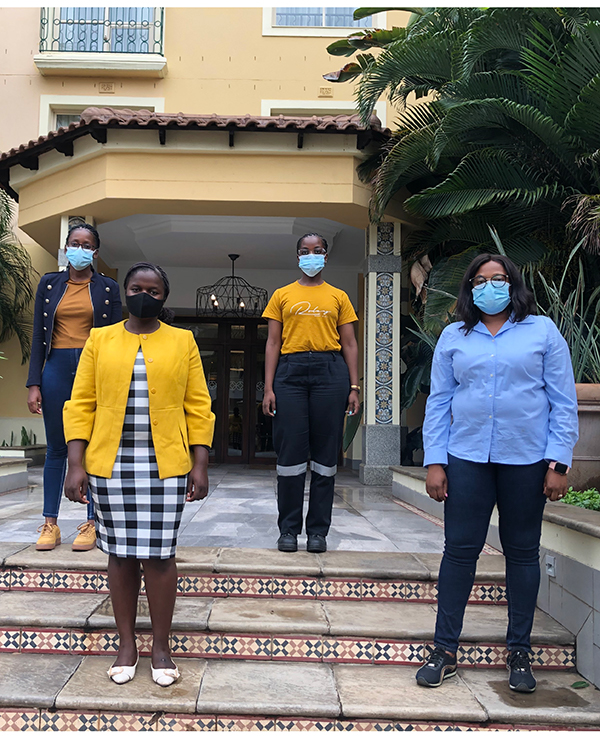News Story
Doyenne Reliability Engineering Program

Recently, CRR partnered with the Doyenne Initiative (DI) to create the inaugural “Doyenne Reliability Engineering Program” (DREP). Dr. Groth designed and delivered a vetting program which included the first week of condensed course on the Fundamentals of Reliability Engineering, interviews, and student assessment to support the DI in vetting potential candidates to receive graduate fellowships from Doyenne Initiative to pursue graduate work. The selected candidates will be encouraged to apply to UMD’s Reliability Engineering graduate program, and if accepted into UMD, will receive funding from DI to attend UMD to complete Master of Science degrees in Reliability Engineering.
This program was necessary to enable gauging preparedness of the students for US education, given the significant differences between higher education in the U.S. and Mozambique. Higher education in Africa faces severe constraints. According to UNESCO statistics, the current tertiary enrolment rate across Africa is at 9.4% , which stands below the global average of 38%, although the trends vary in different African countries. In Mozambique, higher education has seen some improvements over the years. However, research and teaching standards remain low in part due to challenges in terms of recruiting and retaining quality faculty in Mozambique.
In addition to constraints related to access and quality of education, gender inequalities are affecting the education of women and girls in Mozambique. In 2018, the country ranked 139th out of 159 countries on the United Nations Development Program (UNDP)’s Gender Inequality Index.
In that same year, Mozambique’s female gross enrolment ratio in tertiary education was 6.5%, compared to male’s ratio at 8.1%. Women remain underrepresented in higher education, particularly in the science and technology fields.
Not only do women disproportionately lack access to higher education in Mozambique, but they also often find themselves coming up against societal and familial stereotypes linked to careers in the technical fields.. Visible role models are needed to defy stereotypes and reduce cultural restrictions keeping women away from STEM subjects.
The Doyenne Initiative is a newly formed non-profit organization focused on educating graduate-level women engineers. Through the DREP program, the Doyenne Initiative seeks to address the shortage of female engineers in leadership roles. The organization has integrated mentorship, work preparedness and community engagement requirements into the DREP program - preparing women for leadership roles in the industry, academia and in their communities.
The first DREP program was intended to be held in Maputo, Mozambique in 2020, however due to the COVID-19 pandemic, the course was split into two phases. Phase 1 included a one-week intensive reliability engineering course culminating in an exam, followed by interviews and evaluations of the students. Phase 2 will include two additional weeks of intensive coursework to prepare the students for graduate studies.
Eight potential Doyennes completed the Phase 1 program in January. All students exhibited strong interest in engineering and in motivating future women in engineering. All were committed to bettering the country of Mozambique and to serve as leaders and role models for the next generation of women in engineering. Initiatives such as the DREP program play a crucial role in counterbalancing the impact of gender bias found in society as well as within the scientific community.
Published March 5, 2021









